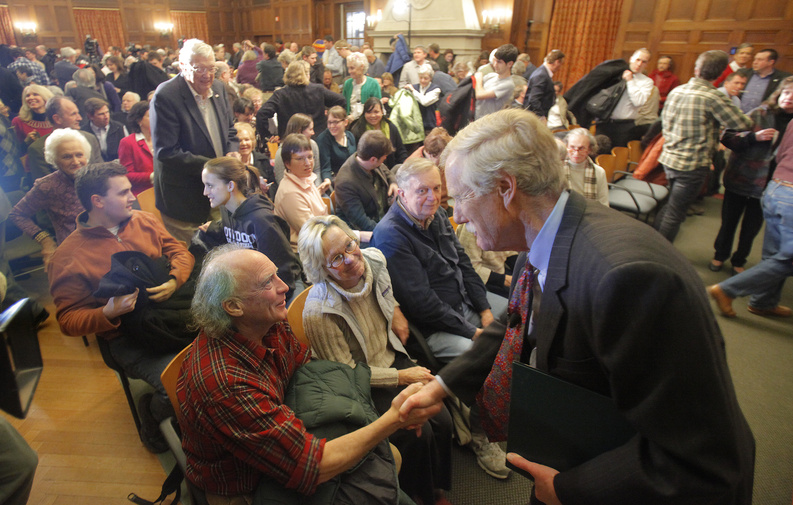A few of us will go to the polls on Tuesday, when a minority of registered Democrats and Republicans will pick their candidates for the big U.S. Senate race in November.
Based on the demand for absentee ballots, the Secretary of State’s Office predicts that turnout this election will be low, even for a primary.
Independents – by far the biggest group of the electorate – can join one of the parties temporarily so they can vote, but it’s easy to see why many of them will opt to stay home. Angus King, the independent candidate who is showing overwhelming support in early polls, won’t be on the ballot until November.
This is nothing new for King, who never had to face a primary challenge in his two runs for governor, and it is nothing new for Maine.
There have been more unenrolled registered voters than members of either party for some time and we have seen serious independent challengers running in statewide races on a routine basis.
The presence of well-financed independent candidates like King and 2010 gubernatorial runner-up Eliot Culter are a political reality in Maine, but our institutions function as if nothing has changed and our two parties are still the duopoly that they were years ago. This affects decisions by campaigns and candidates but also voters, who are forced to cast strategic ballots if they want to avoid a victory for what they see as the greater of two evils.
It is too late to change things in this election cycle, but it’s not too soon to talk about changing things in the future.
The easiest fix, and one which would not involve any changes to the law, would be for King, Cutler and other like-minded moderate Democrats and Republicans to form their own party.
They could then have their own primary and conventions and produce their own platform, giving voters a clearer idea of what they stand for and how they should be held accountable. As it stands now, they offer only their personal appeal, which is not basis enough to build a lasting political movement that would survive them.
If Maine’s independents won’t organize themselves, there are changes in state law that could do the job.
California held it’s first open primary last week, created by a citizen initiative that was approved in the previous election. Now, in order to get on the ballot in November, a candidate of any or no party affiliation has to run in the same June primary in which everybody gets to vote. The top two vote getters face each other in November, head to head.
In some races, that may mean that two Democrats run against each other in the general election. In others it could mean that two Repubicans are on the ballot. It’s possible that two independents lead the field, and no party candidates are in the race in November.
Maine could benefit from an open primary system that makes the final vote a race between two candidates, with the winner getting more than half the vote.
An alternative to California’s system is the one Portland used last year to pick its first elected mayor, ranked-choice voting, in which instant runoffs weeded a field of 15 candidates down to one winner.
Either system would be better than the lackluster primary that only a few people will bother to participate in on Tuesday. Maine is not a two-party state any more, and our political institutions should catch up with that reality. It is too late to change things in this election cycle, but it’s not too soon to talk about changing things in the future.
Copy the Story Link
Send questions/comments to the editors.



Success. Please wait for the page to reload. If the page does not reload within 5 seconds, please refresh the page.
Enter your email and password to access comments.
Hi, to comment on stories you must . This profile is in addition to your subscription and website login.
Already have a commenting profile? .
Invalid username/password.
Please check your email to confirm and complete your registration.
Only subscribers are eligible to post comments. Please subscribe or login first for digital access. Here’s why.
Use the form below to reset your password. When you've submitted your account email, we will send an email with a reset code.